How can sustainability be effectively integrated into engineering education? This was the central question explored by students and lecturers from six countries during the “Energy and Well-Being” Winter School at TU Ilmenau. Participants included over 30 representatives from SUSEE partner universities in France, Italy, Germany, and Poland, as well as a lecturer from Karabük University in Turkey and the Polytechnic University of Viana do Castelo from Portugal as invited guests. Over the course of one week, the participants collaborated across disciplines and borders, sharing best practices, learning from two practical case studies, tour labs and excursions, exchanging ideas, and developing innovative approaches to embed sustainability into academic teaching. The Winter School offered students, along with faculty members from across Europe, the chance to deepen their understanding of sustainable engineering and to contribute their own ideas for creating more sustainable learning environments in higher education. Together, they were working toward a shared goal: to develop new teaching modules focused on sustainability in engineering and compile them into a comprehensive, collaborative handbook for universities across Europe.
Days 1 – Opening
The Winter School officially started on Monday, 24.03, with a speech delivered by Prof. Jens Müller, Vice President for International Affairs and Transfer at TU Ilmenau, who warmly welcomed the Winter School participants. Thanks to an intercultural icebreaking event the participants could get known to one another and establish first connections. The opening event was accompanied by an exhibition of scientific posters showcasing the research work undertaken by teams in TU Ilmenau.
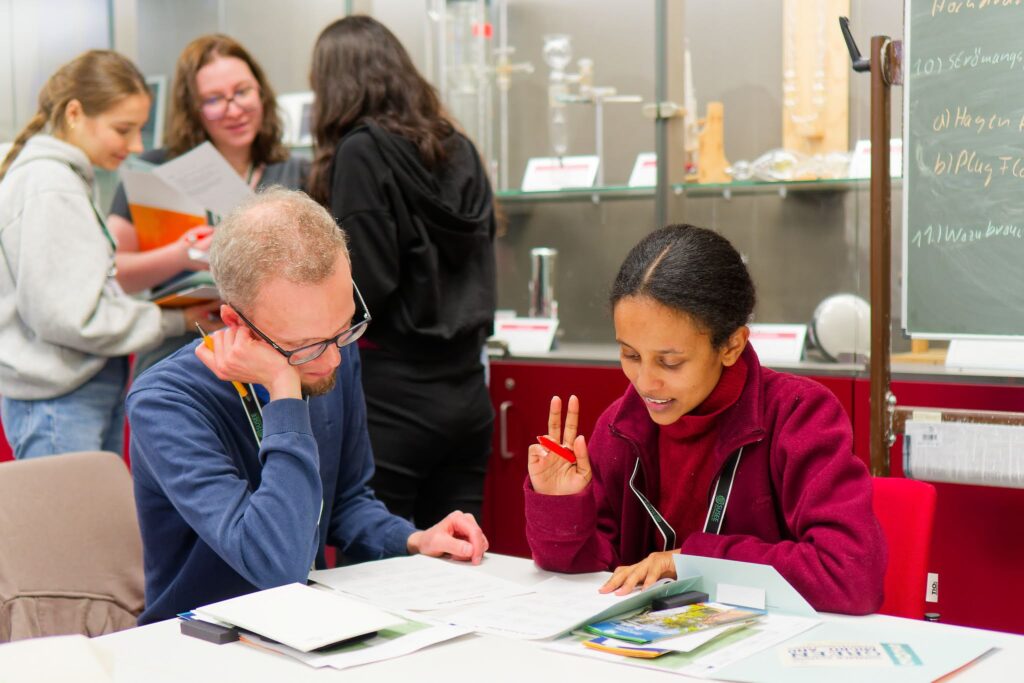
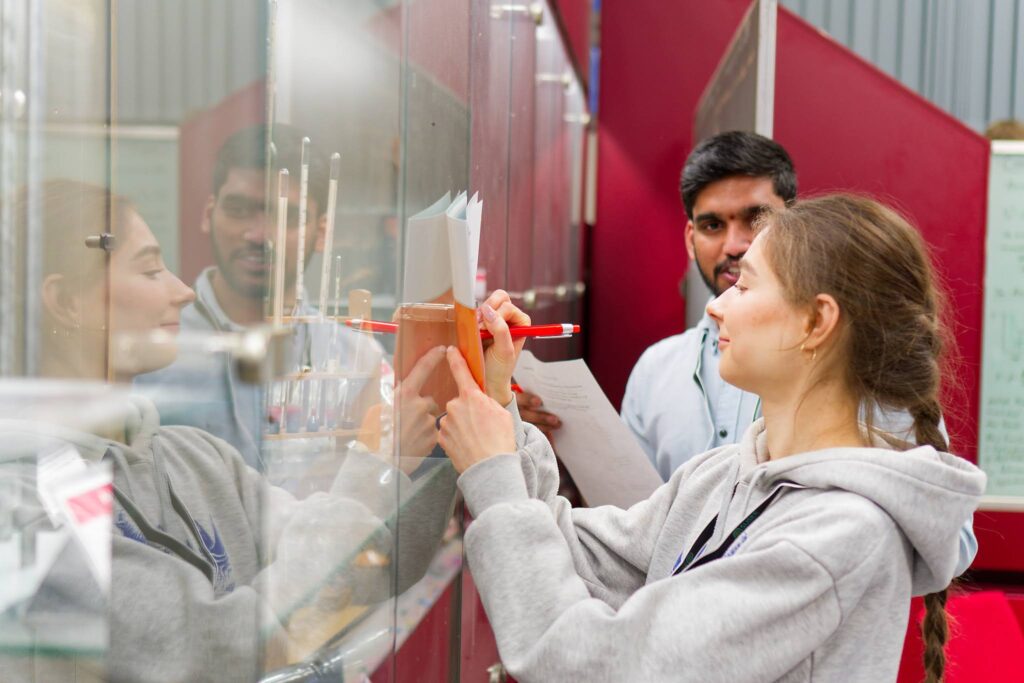
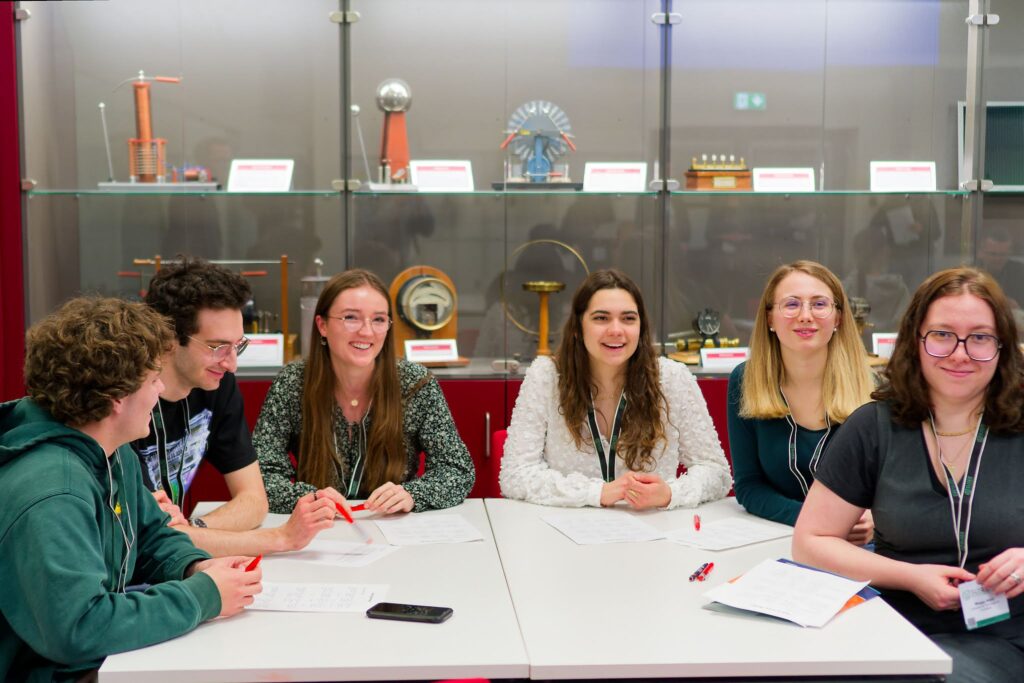
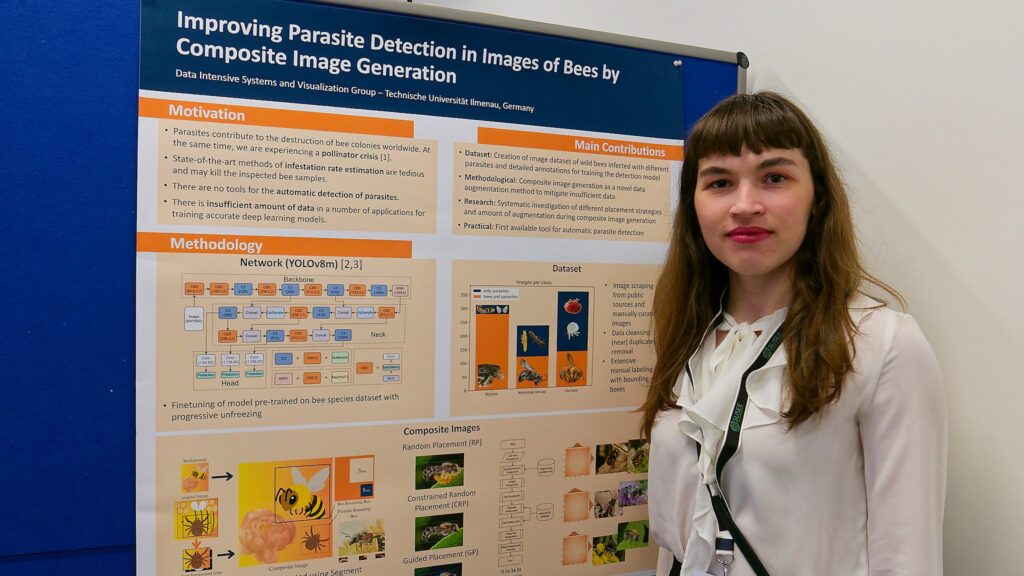
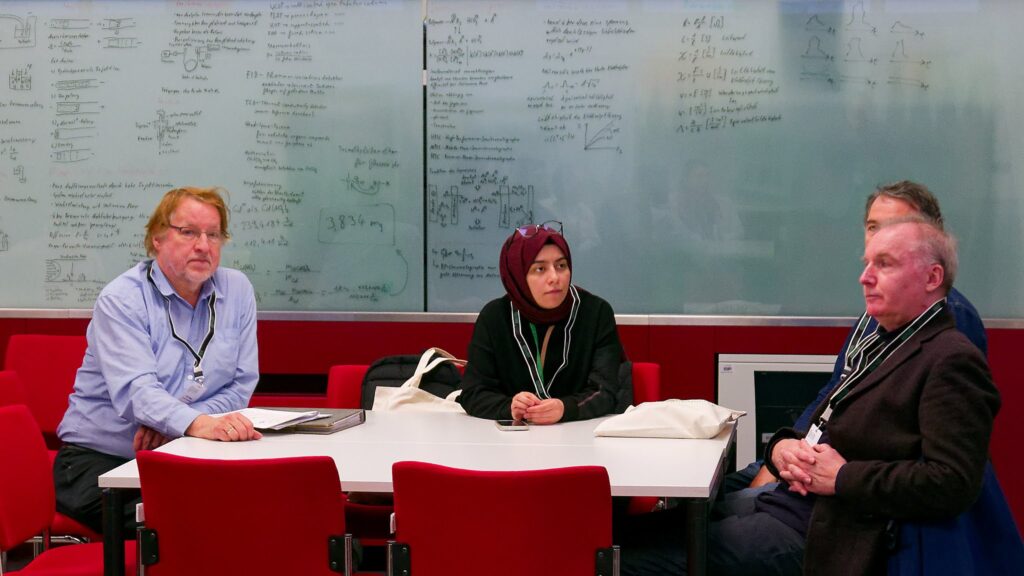
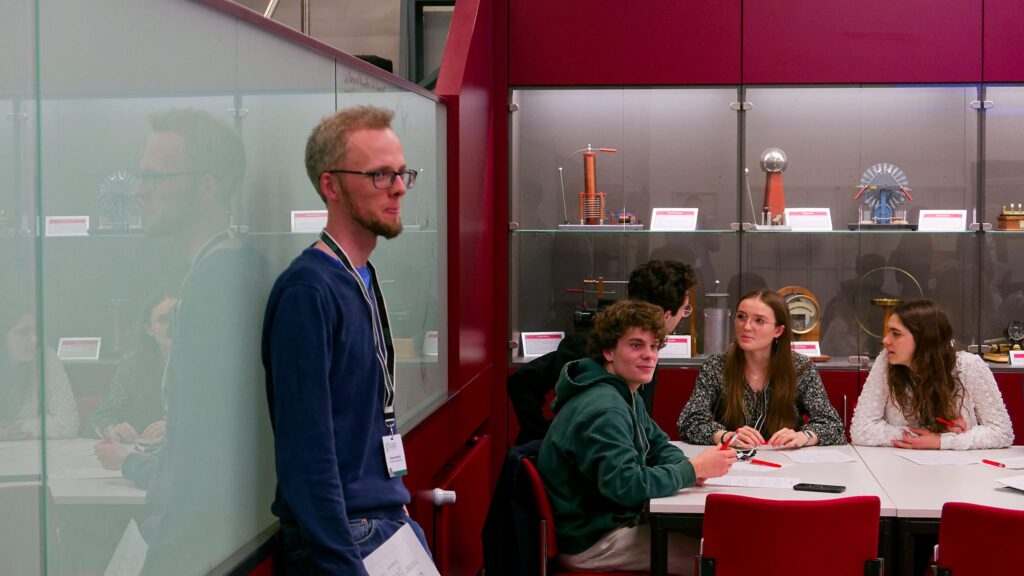
Day 2 – UN Sustainable Goals, economic efficiency and a visit to Biomass Cogeneration Plant
We sterted from the interactive session on UN Sustainable Goals run by Fabian Bendisch, a member of the ThüLeNa – Thuringia Teaches and Learns Sustainably project. Next, prof. Rainer Souren, Head of the Group for Sustainable Production and Logistics Management at TU Ilmenau, delivered the lecture to show the students how economic efficiency and sustainability can work together. He specifically highlighted that sustainable solutions are only effective when they are both technically and economically viable. Later on, the students had a chance to visit the Biomass Cogeneration Plant Ilmenau to get firsthand insight into a real-world example of sustainable energy production, demonstrating how biomass is used to generate both heat and electricity efficiently.
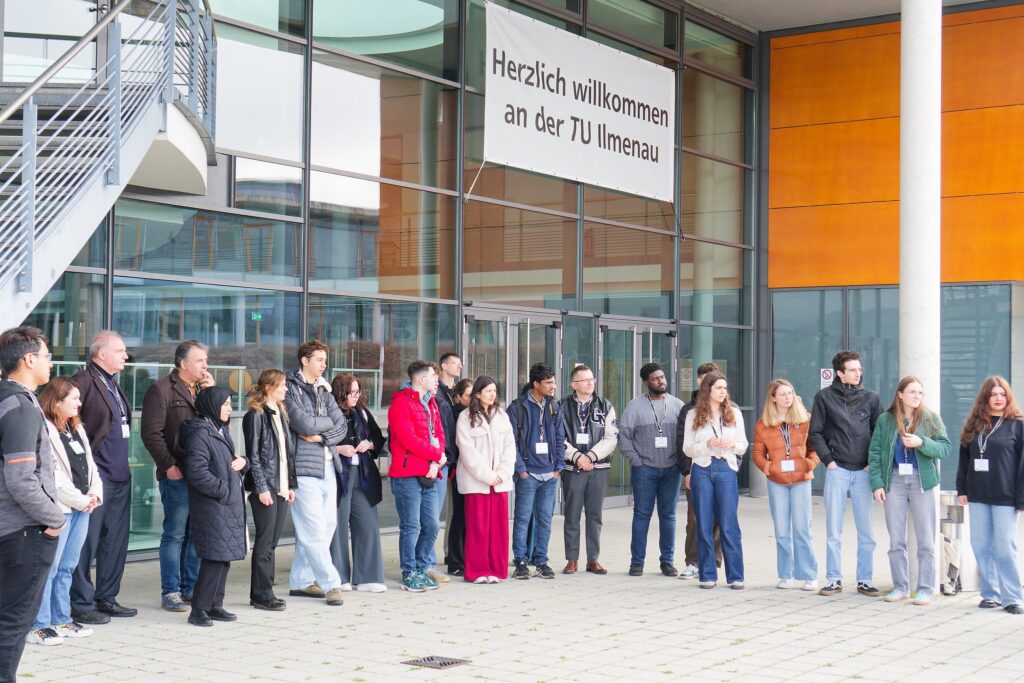
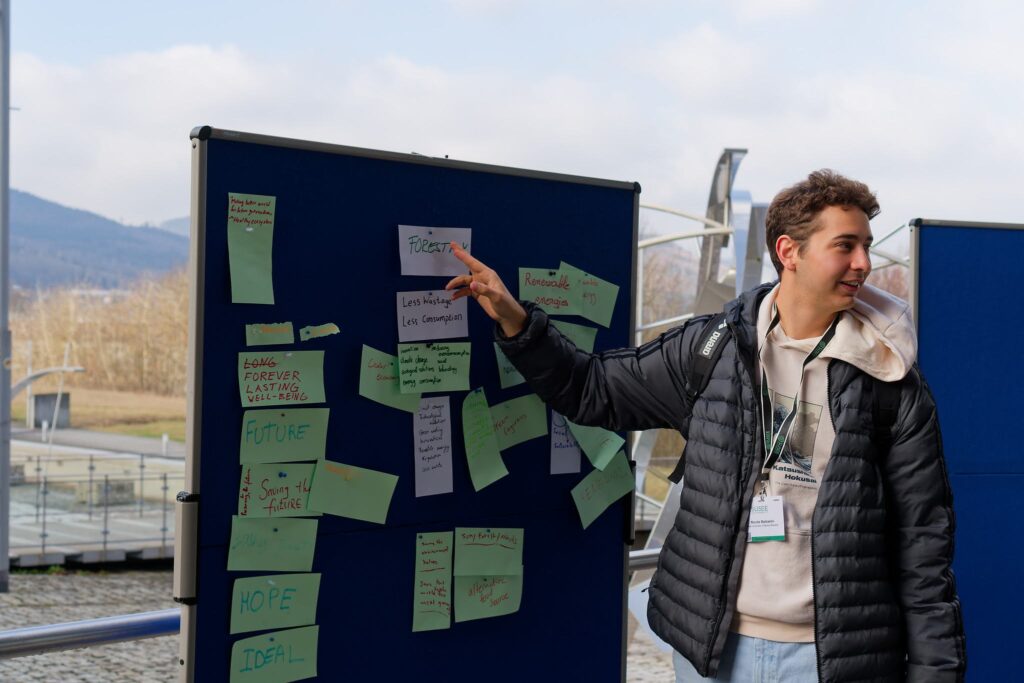
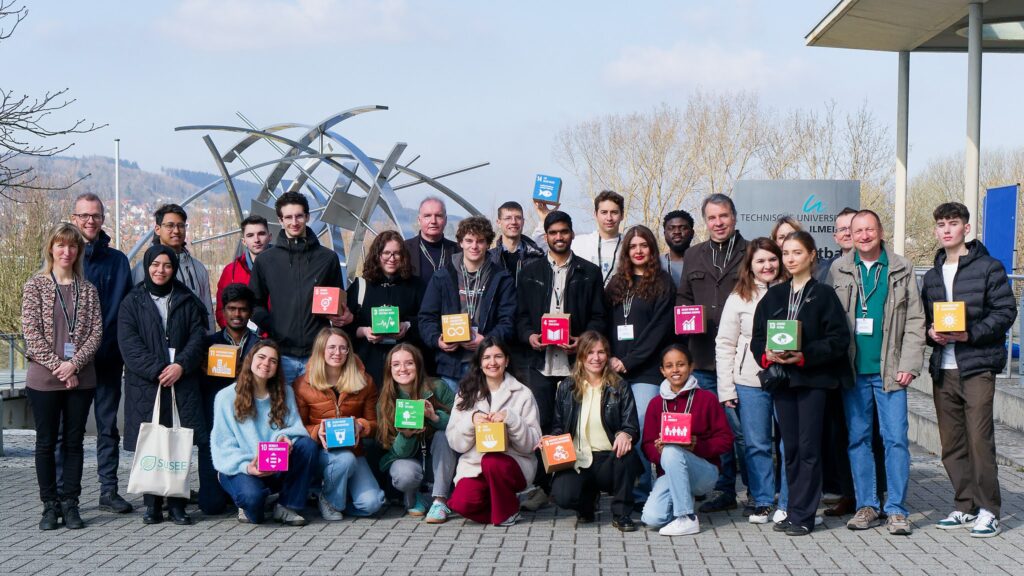
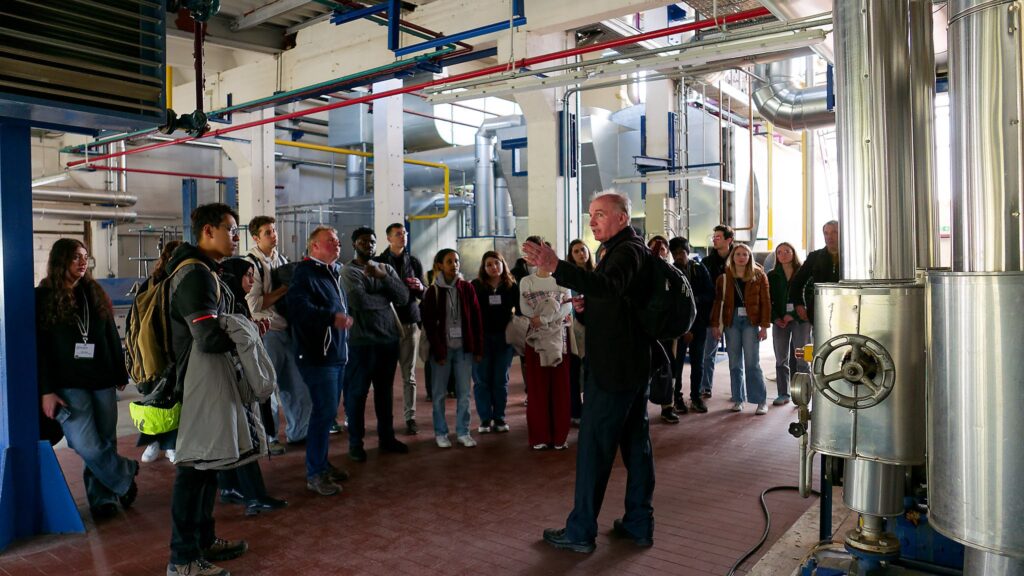
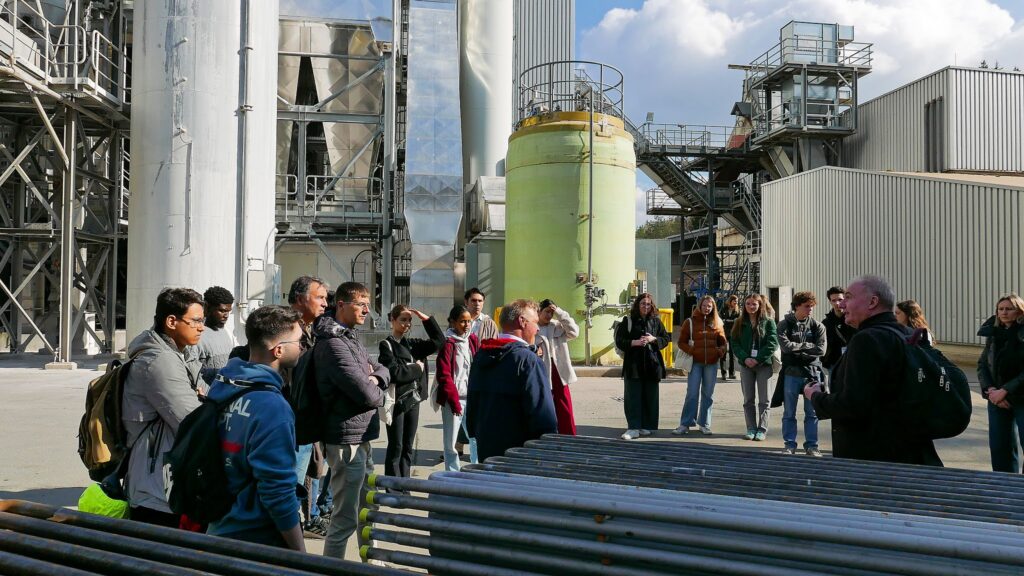
Day 3 -Case Studies, Lab Tours
The Day 3 focused on the didactic tool for the Winter School: case studies on renewable energies. The students were divided into two groups working independently on two case studies: 1) “Heat Pump” led by Prof. Christian Karcher from the Engineering Thermodynamics Group, Department of Mechanical Engineering, TU Ilmenau, 2) “Renewable Energy (Semiconductor Technology)” led by Prof. Dr. Erich Runge and Prof. Dr. Thomas Hannappel from the Institute of Physics, Department of Mathematics and Natural Sciences, TU Ilmenau. Presentation of the case studies was preceded by the theoretical background provided by the professors and by a guest lecturer, Dr. Büsra Tom, Karabük University Türkiye. In the second part of the Day students had a chance to participate in laboratory tours of the machine hall in the Newton Building at TU Ilmenau and the Center for Micro and Nanotechnologies. Then, both groups assembled together to take part in the lecture on “Biomedical Engineering: Technology for Life: A Glimpse into Current Research“, delivered by Dr. Eva-Maria Dölker from the Biomedical Engineering Group, Department of Computer Science and Automation, TU Ilmenau. Finally, the students had the opportunity to exchange ideas with TU Ilmenau’s local Sustainability Working Group, and some of them also took part in an interview at the student-run HSF radio station.
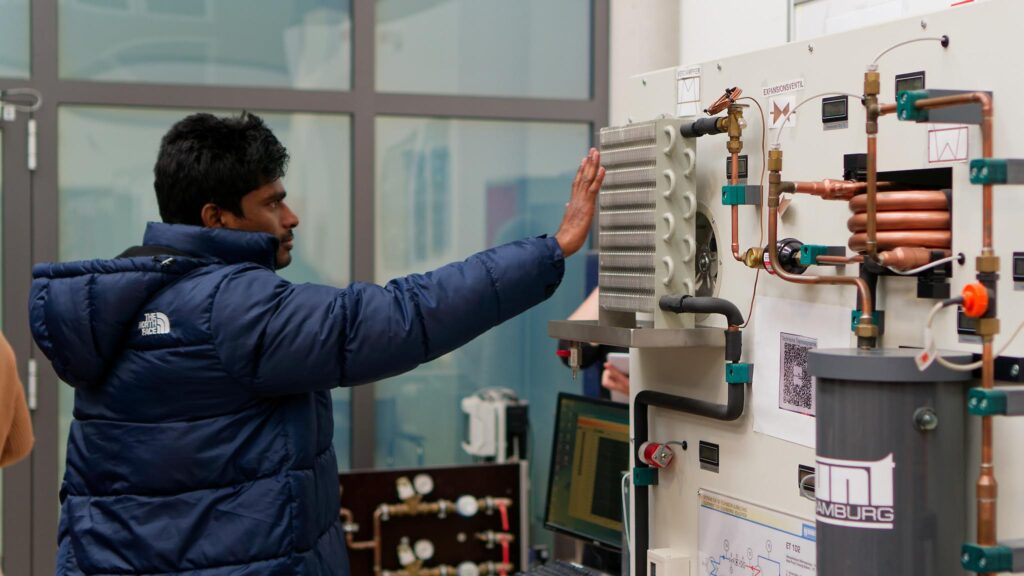
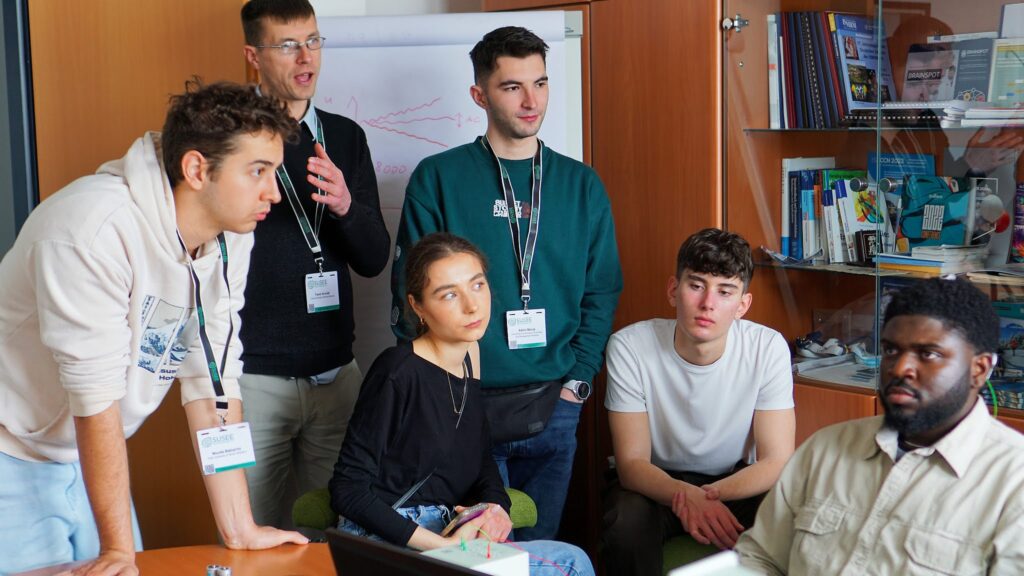
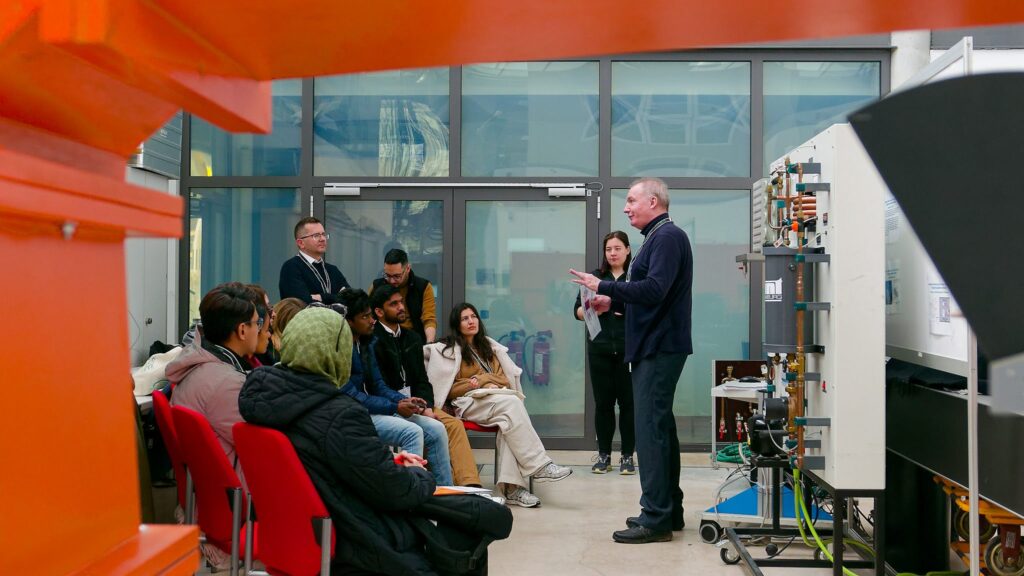
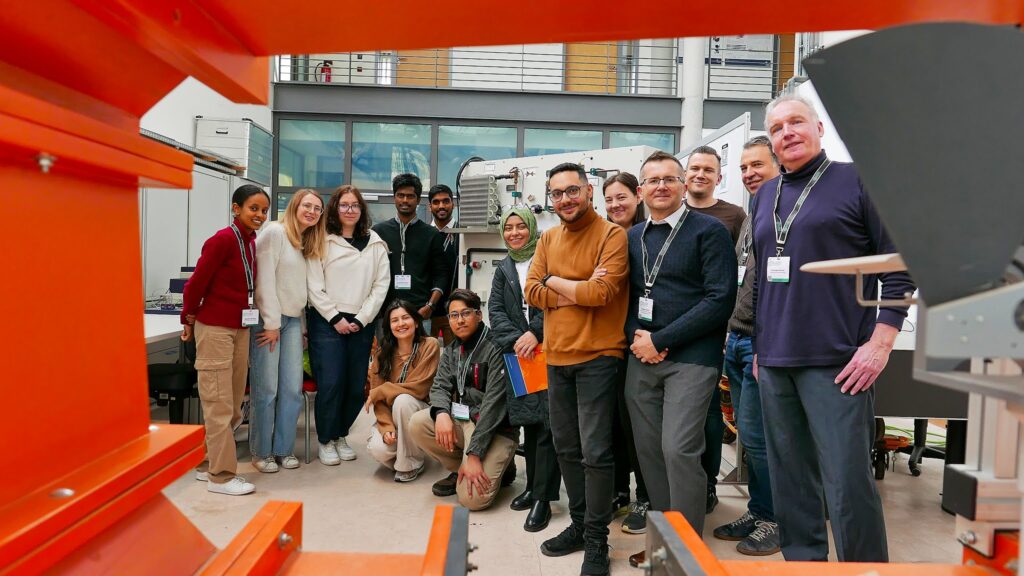
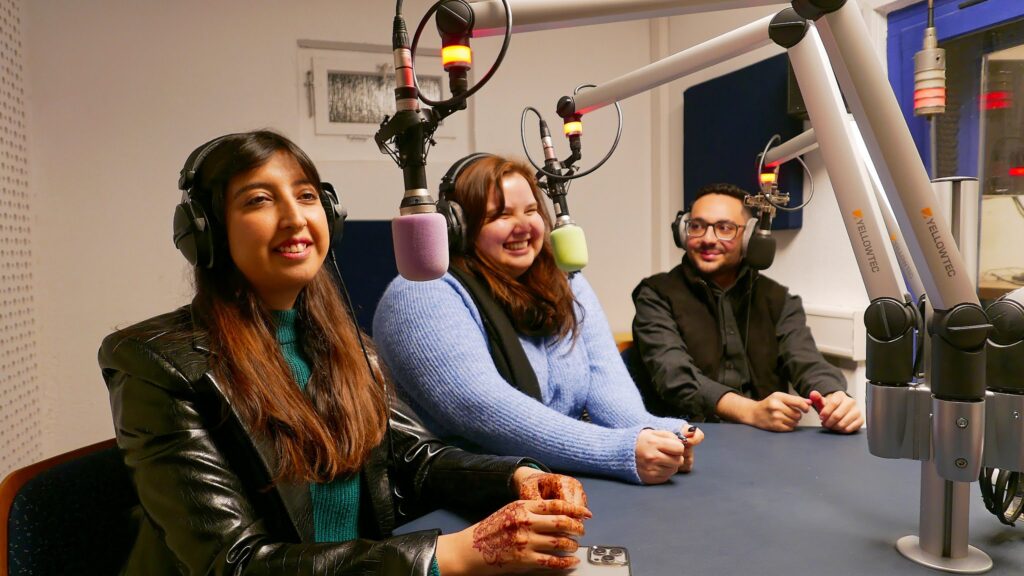
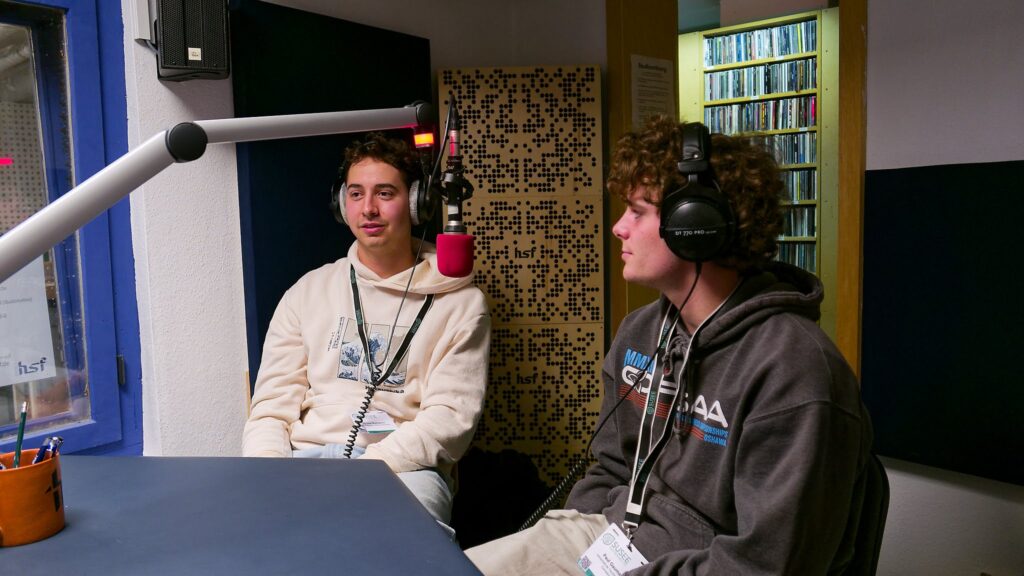
Day 4 – Case Study Presentation. “Sustainability starts in a forest”.
Students continued temawork to finalize the case study presentations in their respective groups. Digital posters were prepared and presented to their fellow students under the supervision of Prof. Dr. Christian Karcher (Case Study Heat Pump), Prof. Dr. Erich Runge, Prof. Dr. Thomas Hannappel, Juliane Koch (Case Study Renewable Energy, Semiconductor Technology). Following the successful presentations the students had a tour in the forest guided by Mr Matthias Wetzel, a forester. Sustainability really starts in the forest—where ecosystems quietly provide the foundation for a balanced planet. Forests not only absorb carbon and purify air and water, but also support biodiversity and offer renewable resources when managed responsibly. By understanding and protecting forest systems, we take a crucial first step toward a more sustainable future, where natural resources are preserved, climate change is mitigated, and human well-being is deeply connected to the health of our environment.
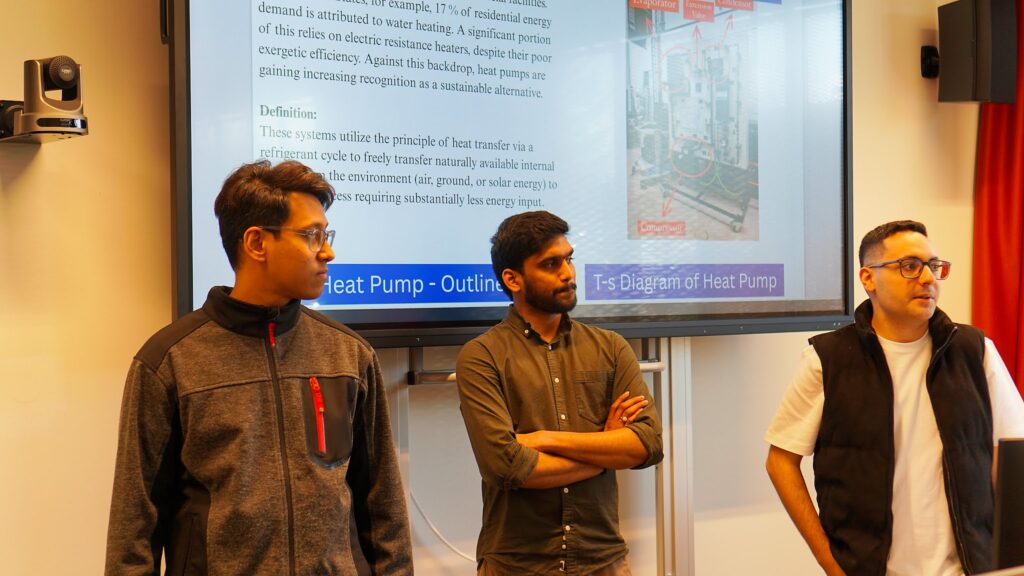
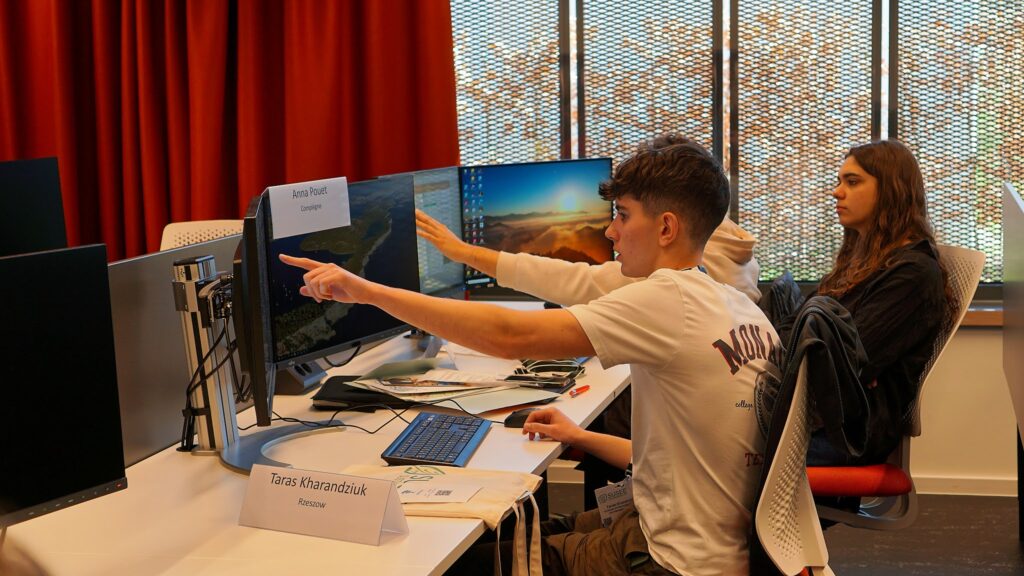
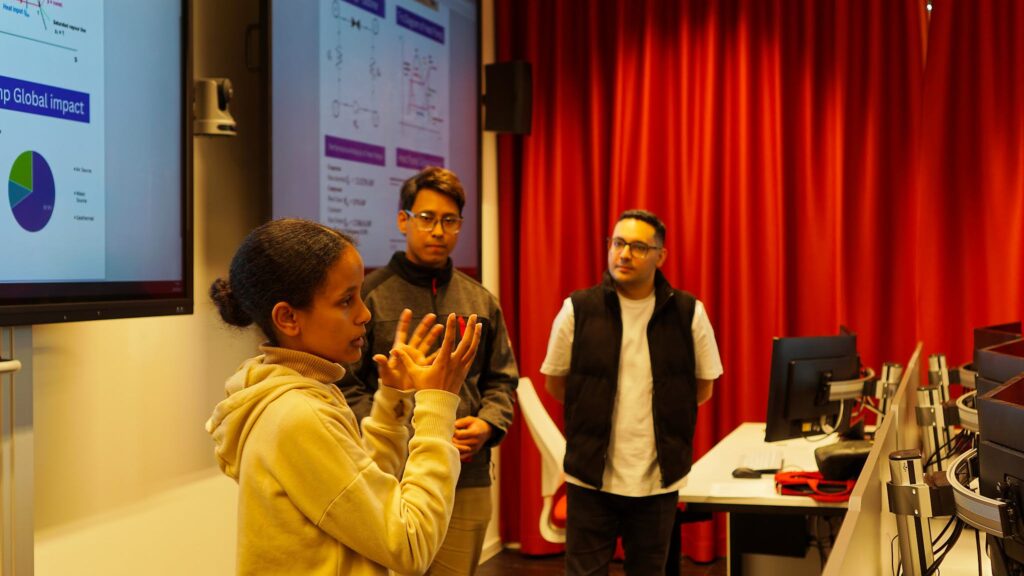
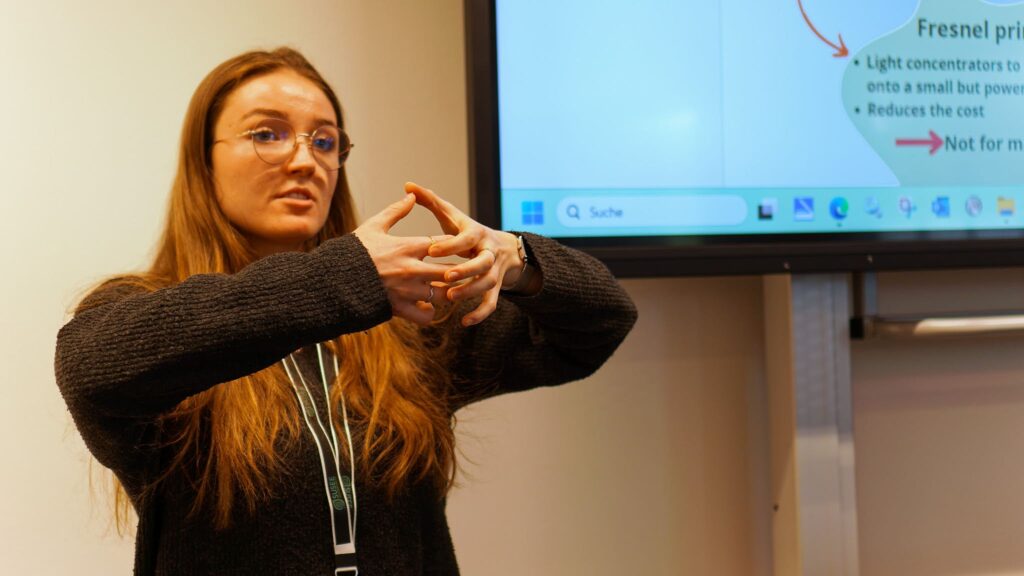
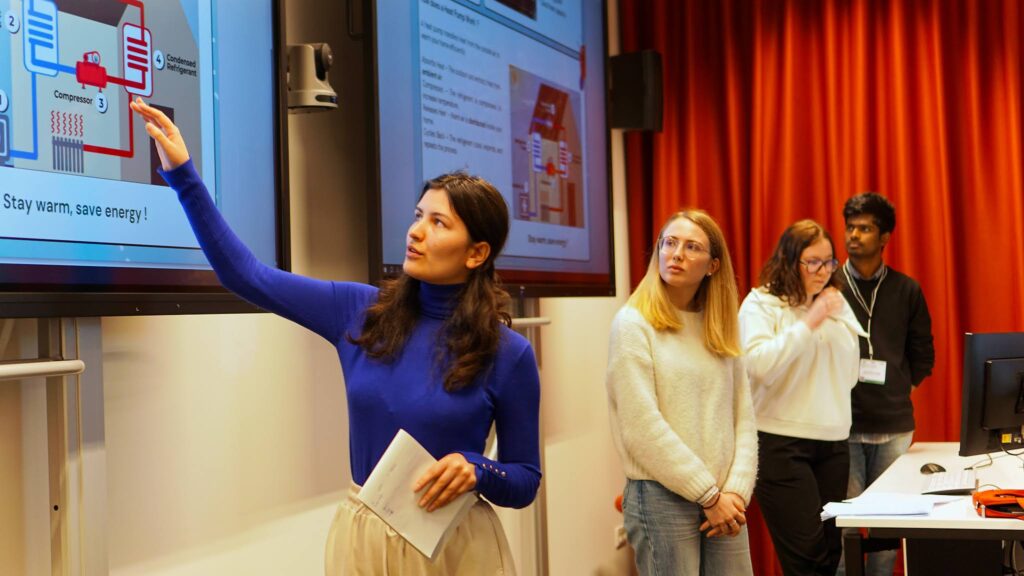
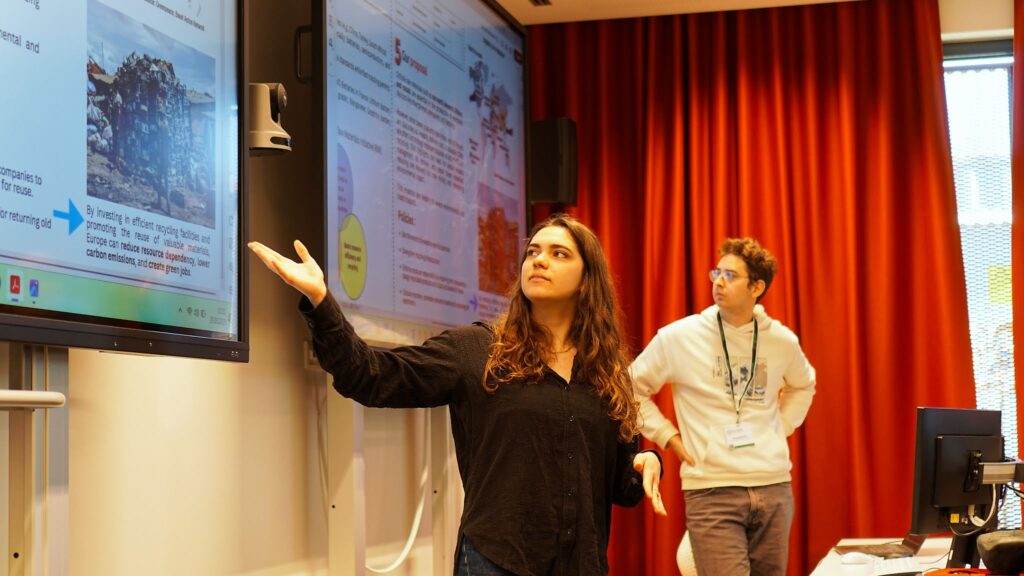
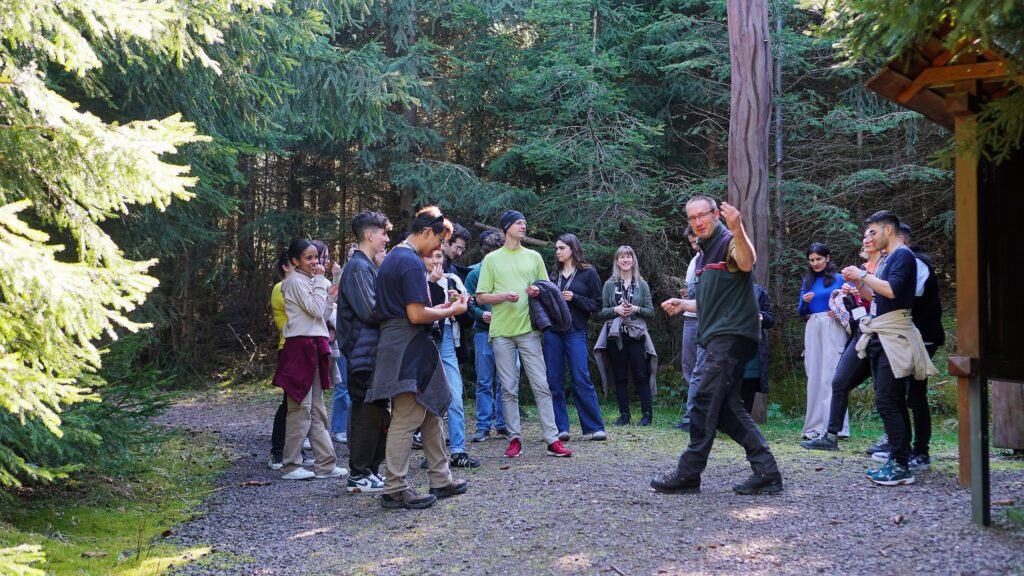
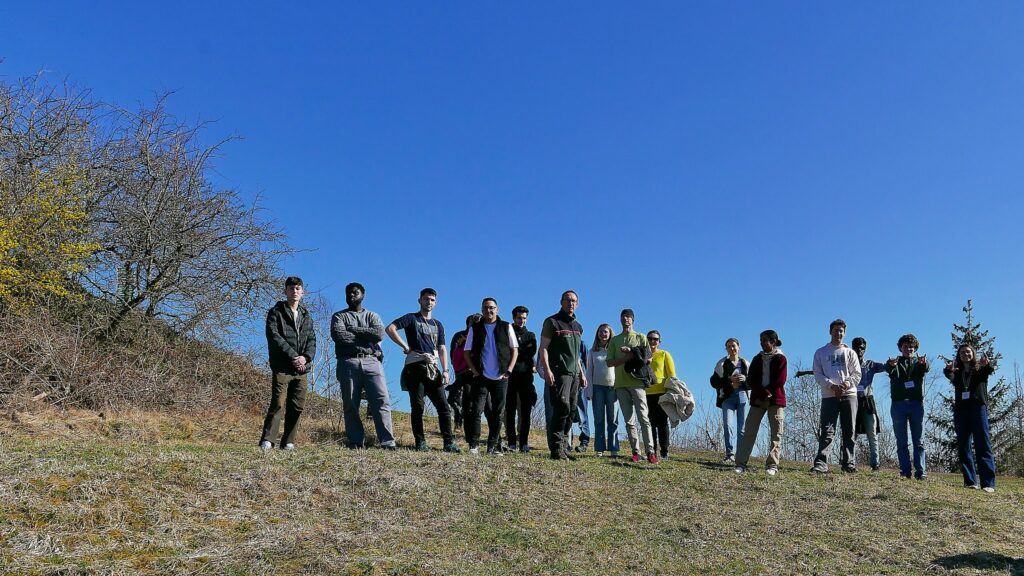
Day 5 – Wrap up
The Winter School concluded with a dynamic wrap-up session that brought together students, lecturers, and organizers to reflect on key insights gained over the course of the program. Participants shared their experience, highlighted the value of interdisciplinary collaboration, shared their strongly positive feedback, and demonstrated readiness to initiate projects focused on real-world sustainability challenges.
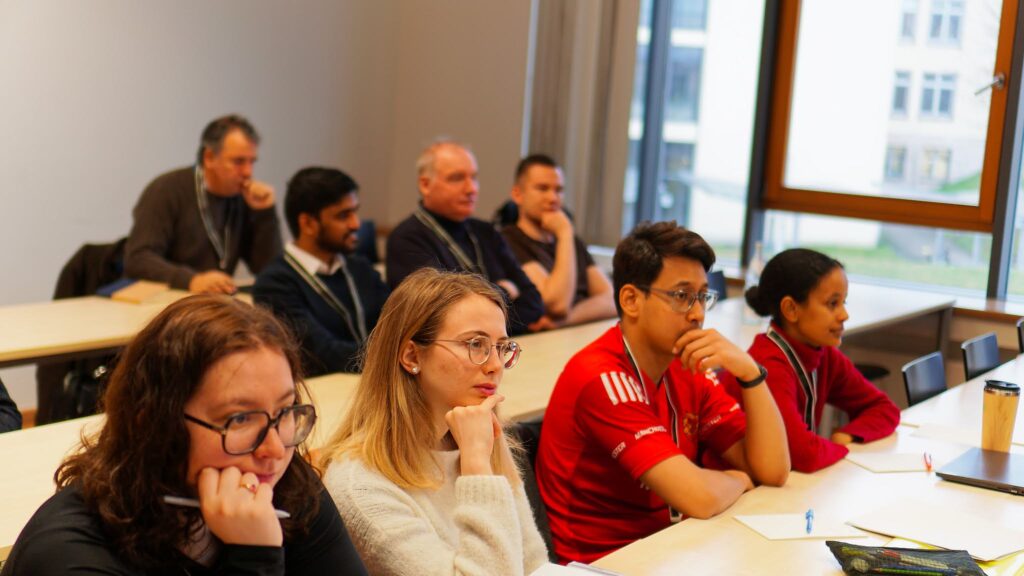
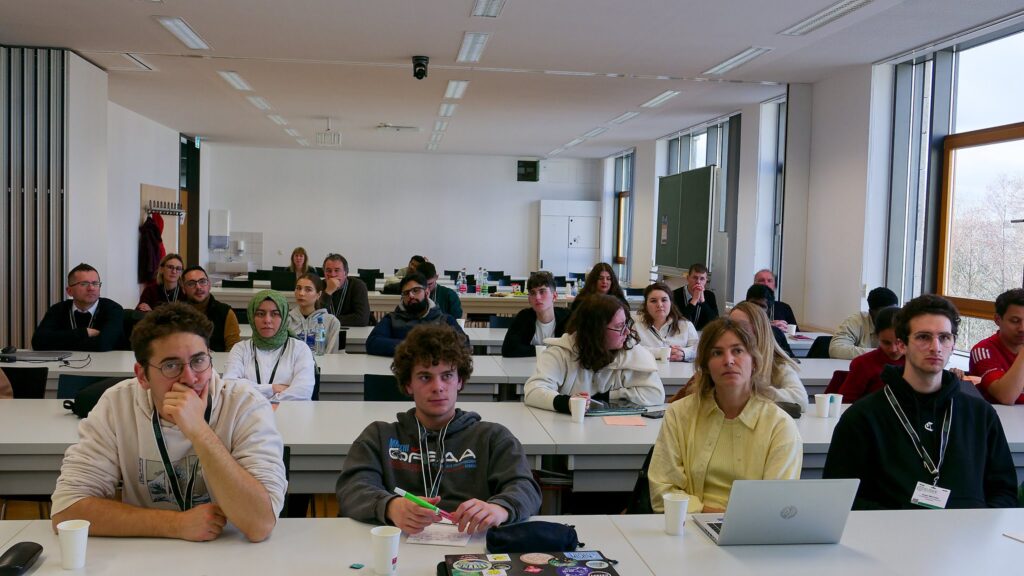
Following the successful premiere at TU Ilmenau, the project will be continued at other SUNRISE partner universities. The next SUSEE Summer School will take place in Italy from July 14 to 18, 2025.
Stay tuned!
